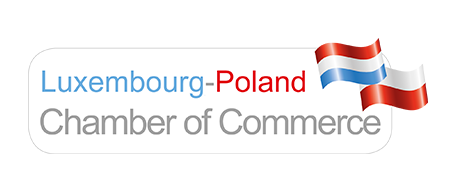How to Write a Business Plan That Actually Gets You Clients and Investors
Let’s be real for a moment: writing a business plan—especially if you’re starting a business in Luxembourg—can feel like one of those things you should do, but have no clue where to start or if it’s even worth the effort.
If you’re a woman thinking about launching something of your own, the idea of sitting down to write a formal business plan might sound overwhelming—or like something only banks or corporate people care about. But here’s the thing: a good plan isn’t just for investors. It’s for you.
It’s a tool that helps you get clear on what you’re doing and why, so you don’t keep second-guessing yourself every few weeks. It also helps other people understand what you’re about—whether that’s clients, potential collaborators, or funders.
In this article, I’ll walk you through the key elements of a business plan in Luxembourg, what to skip, and how to start even if you’re totally new to business planning.
And if you want help with the process? That’s exactly what we offer in the Entrepreneurial Woman Project 2025—a hands-on workshop created for women in Luxembourg. More on that below.
Why bother with a business plan in the first place?
Because trying to run a business without a plan is like going on a road trip without a map. You might get somewhere eventually, but it’ll take longer—and be way more stressful.
A simple business plan in Luxembourg helps you:
- Understand who you’re helping and how.
- Create offers that actually make sense to people.
- Talk about your business with confidence.
- Make clearer decisions instead of spinning in circles.
- Show others (including investors or clients) that you know what you’re doing.
This doesn’t need to be some 40-page masterpiece. Honestly, a few well-thought-out pages can do the job. What matters is clarity—not complexity.
What to Include in a Business Plan (No MBA Needed)
If you’re building a business in Luxembourg, these are the basics worth covering:
- Executive Summary
A short and sweet overview. What’s your business about, who is it for, why does it matter, and what are your main goals? Think of it like a snapshot you could share in a conversation. - The Problem You Solve
What real-world challenge does your product or service address? This part is key—it’s what makes your business relevant. - Your Ideal Client or Target Market
Be specific. “Women between 25–40” is a start. But what are their habits? What keeps them up at night Googling solutions? - What You’re Offering
Describe your service or product in a way that someone not in your industry would understand. Why is it valuable? What makes it different? - Your Business Model
How will you earn money? What will you charge? How will people pay you? - Marketing and Sales Plan
How will people hear about you? How will you turn interest into actual income? - Competitor Research
Who else is doing something similar? What are they doing well, and how will you stand out? - Basic Financials
This doesn’t have to be scary. Show you’ve thought about your costs, pricing, and income goals over the next 1–3 years.
Beginner Mistakes to Avoid
These come up a lot, especially when you’re doing this solo:
- Writing for investors instead of people.
Your plan isn’t a corporate document. It’s a tool that helps you talk to real people—clients, mentors, funders—with clarity. - Trying to sound impressive.
It’s better to be clear than clever. Avoid jargon. Keep it human. - Waiting until it’s “perfect.”
You can—and should—update it as you grow. It’s not a one-time thing. - Skipping the research.
Don’t just guess what people want. Talk to them. Use surveys, interviews, or even Instagram polls.
Simple Business Plan Template (Start Here)
Here’s a quick framework to get the wheels turning. You can build on it later:
- Who you are & what you do:
“I help [audience] solve [problem] through [offer].” - The problem you’re solving:
“My clients struggle with [issue] and are looking for [result].” - Your offer:
“I provide [product/service], which helps them achieve [benefit].” - How you’ll reach them:
“I’ll market through [channels] and convert leads with [sales method].” - Your money plan:
“My prices will range from €X to €Y. I need Z clients/month to hit my income goal.”
That’s it. Start simple. You can refine it over time.

Need Help Turning Your Business Plan Into Reality?
This is exactly what we do in the Entrepreneurial Woman Project 2025—a practical business workshop created for women in Luxembourg who want to actually launch their ideas.
We walk you through it step by step.
You’ll get expert guidance and real feedback (not just theory).
You’ll be part of a community that cheers you on.
And yes—there are prizes to be won at the end.
Whether you already have a business idea or are still figuring it out, this program gives you structure, support, and the tools to move forward with confidence.
👉 Applications are now open. Sign up to reserve your spot today!
Apply for the Entrepreneurial Woman Project 2025

Oliwia Gertych,
LPCC Team

